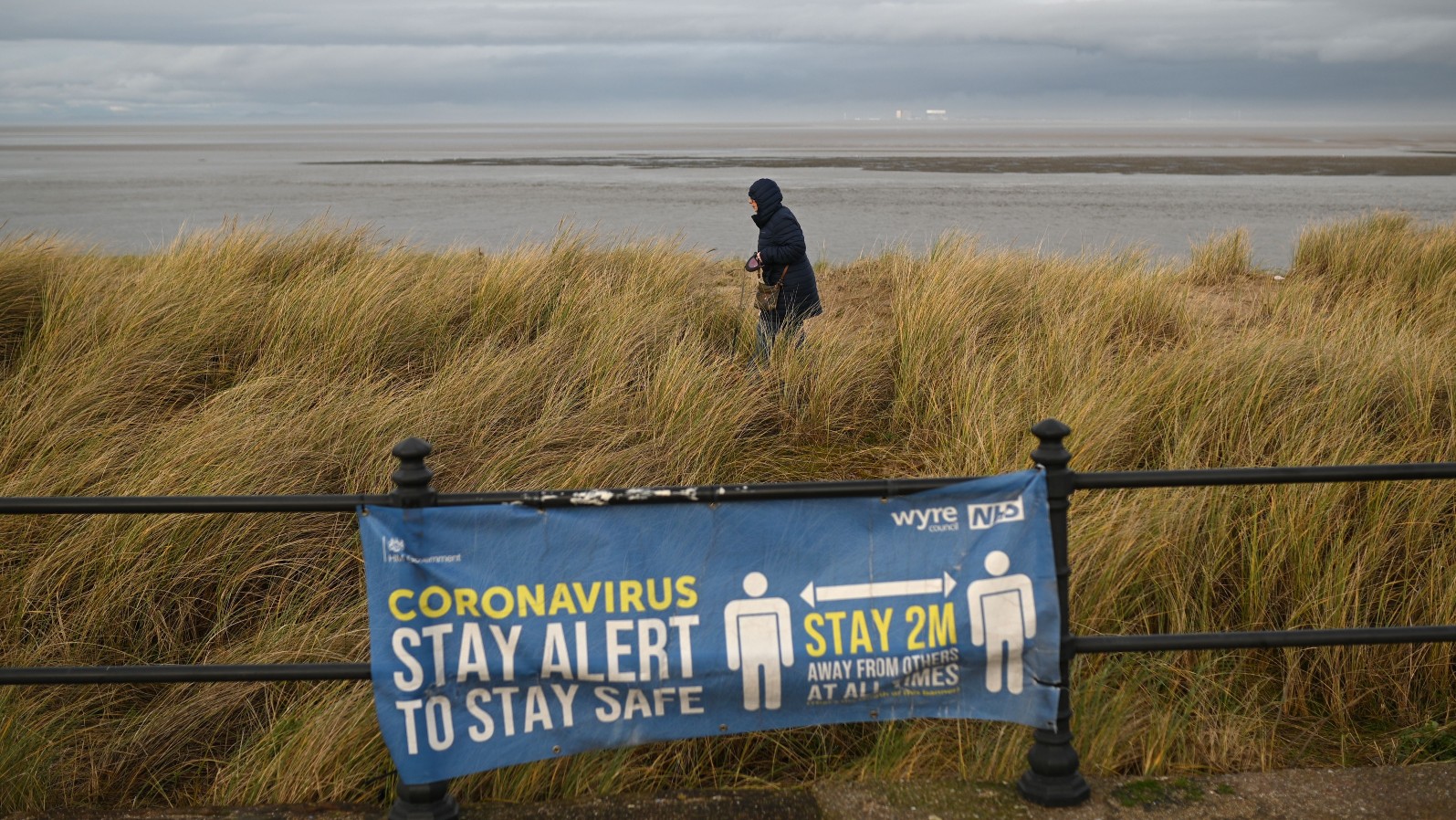Are lockdown effects ‘killing more people than Covid’?
Excess deaths data has blown open debate about pandemic restrictions

A free daily email with the biggest news stories of the day – and the best features from TheWeek.com
You are now subscribed
Your newsletter sign-up was successful
The effectiveness of the UK’s Covid lockdowns is being debated once again following the publication of new statistics which suggest that the pandemic response may now be killing more people than the virus itself.
Excess deaths data released this week by the Office for National Statistics (ONS) showed that around 1,000 more people than usual are dying each week from conditions other than the virus.
The figures revealed that the rate of excess deaths is 14.4% higher than the five-year average, and that 1,350 more people died than usual in the week ending 5 August.
The Week
Escape your echo chamber. Get the facts behind the news, plus analysis from multiple perspectives.

Sign up for The Week's Free Newsletters
From our morning news briefing to a weekly Good News Newsletter, get the best of The Week delivered directly to your inbox.
From our morning news briefing to a weekly Good News Newsletter, get the best of The Week delivered directly to your inbox.
Covid-related deaths accounted for 469 of the total, but the remaining 881 have “not been explained”, said the Daily Mail.
‘Silent health crisis’
The Telegraph said the figures “suggest the country is facing a new silent health crisis linked to the pandemic response rather than to the virus itself”. The paper reported that the Department of Health has ordered an investigation amid concern that the deaths are linked to delays in treatment for conditions such as cancer, diabetes and heart disease.
The British Heart Foundation told the paper that it was “deeply concerned” by the numbers, while Dr Charles Levinson, chief executive of Doctorcall, a private GP service, said: “Hundreds and hundreds of people dying every week – what is going on?”
He added that he thought “delays in seeking and receiving healthcare” were no doubt the driving force behind the startling figures.
A free daily email with the biggest news stories of the day – and the best features from TheWeek.com
The government was warned as far back as July 2020 that tens of thousands more people could die from the effects of the Covid lockdowns and efforts to protect the NHS than from the virus itself.
Experts told ministers that healthcare delays and the economic fallout of the coronavirus could result in up to 200,000 excess deaths.
‘Divisive and unhelpful’
Lockdown opponents have seized upon the findings, claiming they vindicate their anti-restriction stance. “Saying this over two years ago – but I suppose late is better than never,” said writer and former NHS consultant Gary Sidley on Twitter.
But others pointed the finger away from lockdown as a contributing factor to excess deaths. The writer Frances Coppola said it was not “lockdown effects” that were to blame but “underfunding-of-public-services effects”.
Stuart McDonald, founder and co-chair of the Covid-19 Actuaries Response Group, tweeted that blaming lockdown was “divisive and unhelpful”.
And Twitter statistician Adam Jacobs said that linking the excess deaths to lockdown restrictions was “total b***ocks” because “there were never any lockdown restrictions forbidding people from going to hospital or their GP”.
The problem was that “health services were overwhelmed treating patients with Covid” and therefore, he argued, it was not lockdowns but “Covid itself” that has caused the problem.
Chas Newkey-Burden has been part of The Week Digital team for more than a decade and a journalist for 25 years, starting out on the irreverent football weekly 90 Minutes, before moving to lifestyle magazines Loaded and Attitude. He was a columnist for The Big Issue and landed a world exclusive with David Beckham that became the weekly magazine’s bestselling issue. He now writes regularly for The Guardian, The Telegraph, The Independent, Metro, FourFourTwo and the i new site. He is also the author of a number of non-fiction books.
-
 How the FCC’s ‘equal time’ rule works
How the FCC’s ‘equal time’ rule worksIn the Spotlight The law is at the heart of the Colbert-CBS conflict
-
 What is the endgame in the DHS shutdown?
What is the endgame in the DHS shutdown?Today’s Big Question Democrats want to rein in ICE’s immigration crackdown
-
 ‘Poor time management isn’t just an inconvenience’
‘Poor time management isn’t just an inconvenience’Instant Opinion Opinion, comment and editorials of the day
-
 A Nipah virus outbreak in India has brought back Covid-era surveillance
A Nipah virus outbreak in India has brought back Covid-era surveillanceUnder the radar The disease can spread through animals and humans
-
 Mixed nuts: RFK Jr.’s new nutrition guidelines receive uneven reviews
Mixed nuts: RFK Jr.’s new nutrition guidelines receive uneven reviewsTalking Points The guidelines emphasize red meat and full-fat dairy
-
 Covid-19 mRNA vaccines could help fight cancer
Covid-19 mRNA vaccines could help fight cancerUnder the radar They boost the immune system
-
 The new Stratus Covid strain – and why it’s on the rise
The new Stratus Covid strain – and why it’s on the riseThe Explainer ‘No evidence’ new variant is more dangerous or that vaccines won’t work against it, say UK health experts
-
 RFK Jr. vaccine panel advises restricting MMRV shot
RFK Jr. vaccine panel advises restricting MMRV shotSpeed Read The committee voted to restrict access to a childhood vaccine against chickenpox
-
 RFK Jr. scraps Covid shots for pregnant women, kids
RFK Jr. scraps Covid shots for pregnant women, kidsSpeed Read The Health Secretary announced a policy change without informing CDC officials
-
 New FDA chiefs limit Covid-19 shots to elderly, sick
New FDA chiefs limit Covid-19 shots to elderly, sickspeed read The FDA set stricter approval standards for booster shots
-
 RFK Jr.: A new plan for sabotaging vaccines
RFK Jr.: A new plan for sabotaging vaccinesFeature The Health Secretary announced changes to vaccine testing and asks Americans to 'do your own research'